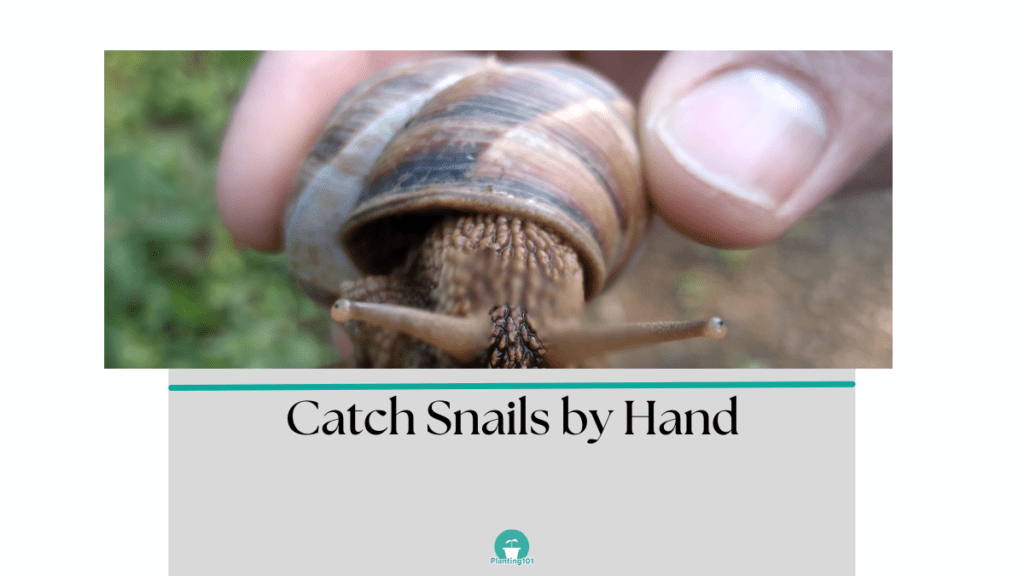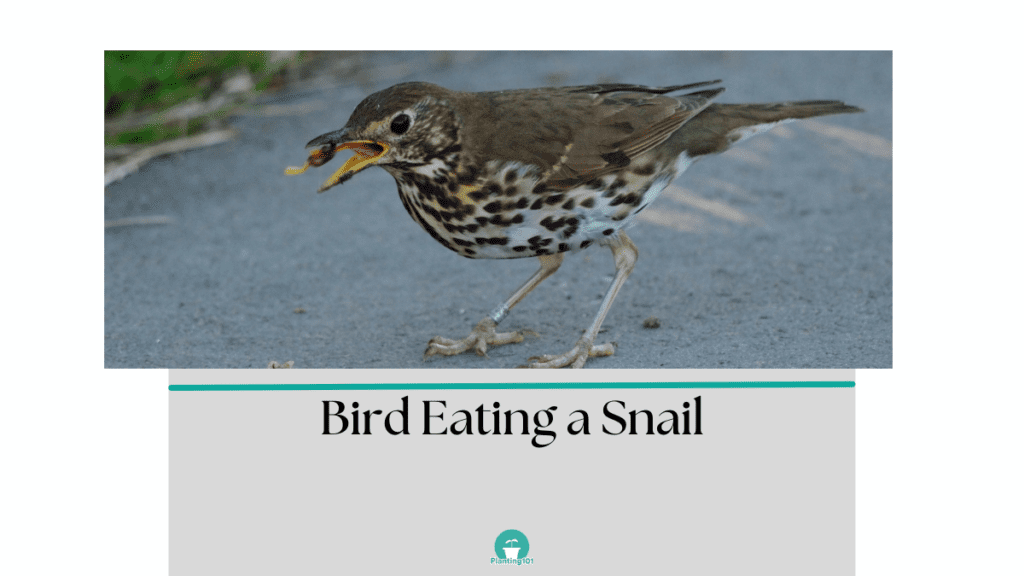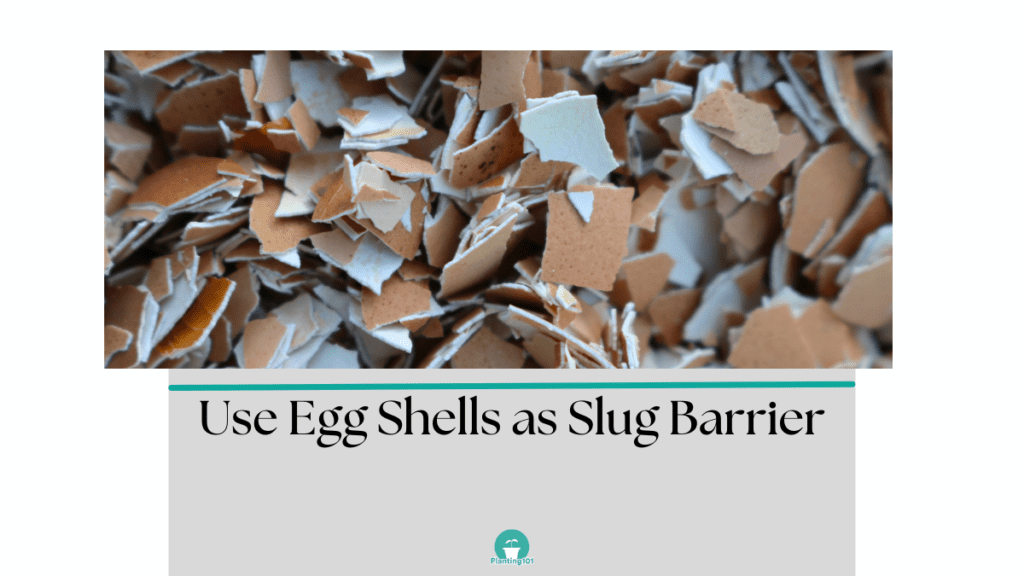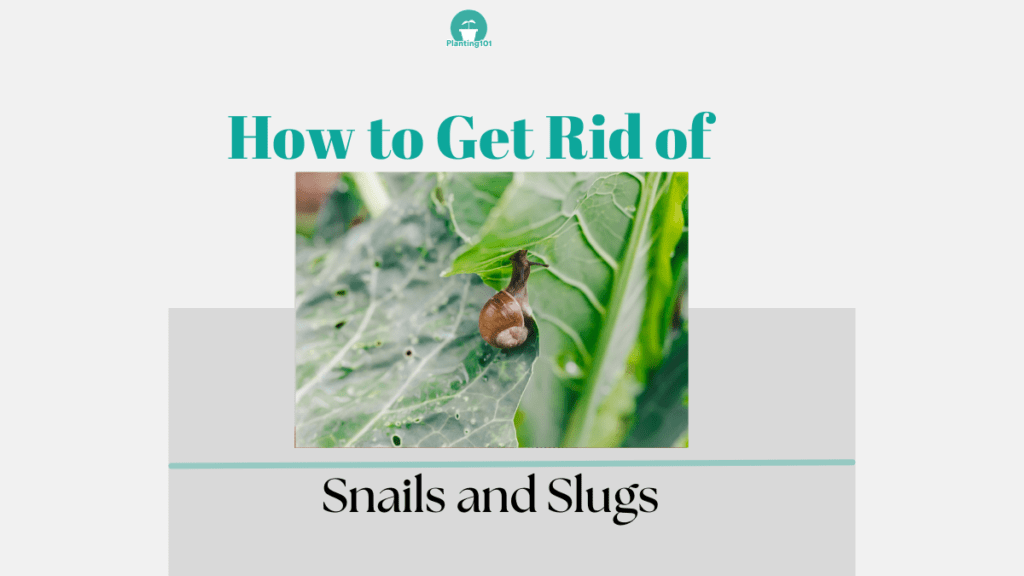Do you have a problem with slugs or snails in your vegetable garden? Slugs and snails can wreak havoc on vegetable gardens, munching on the tender leaves of plants. They can eat entire seedlings, leaving holes on leaves and chewing plants down to skeletons. Here are ways to keep slugs and snails out of your vegetable garden.
How to Tell if You Have a Snails and Slugs Problem in Your Vegetable Garden
You will see lots of little holes all over the leaves of the plants in your vegetable garden. That is a telltale sign that your plants and vegetables are being eaten by snails and slugs. They can be quite destructive in your vegetable garden chewing through leaves.

1. Hand Pick Snails and Slugs
Probably the most straightforward way to get rid of snails and slugs in your vegetable garden is to pick them off one by one. Pick up and remove any snails or slugs you come across. You have three options to get rid of the snails and slugs. You can throw them into a pail of salty water, you can squish them one by one or leave them out on the sidewalk for the birds to eat.

2. Bring In Natural Predators
Bringing natural predators into your yard is an effective way to get rid of snails and slugs. Snails and slugs are preyed upon by chickens, ducks, birds, and frogs in the wild. Although this may not be the most practical approach to getting rid of snails and slugs in your vegetable garden because they may end up devouring the vegetables!

3. Use Herbs to Repel Slugs
Snails and slugs don’t like fennel, garlic, mint, chives and sage. Planting these herbs in your vegetable garden can help repel slugs but it’s not a hundred percent effective. You will have to use other slug repellent methods on this list to effectively get rid of snails and slugs in your vegetable garden.
4. Use Coffee Grounds and Eggshells to Kills Snails
Use slug barriers to control snails and slugs in your vegetable garden. Slugs are killed by anything with sharp edges, cutting their soft underbelly and causing dehydration. Coffee grounds and eggshells have sharp edges that work well as slug barriers. Simply scatter it around your vegetable garden to kills snails and slugs.

5. Use Diatomaceous Earth (DE) to Kill Snails
You can also use diatomaceous earth (DE) as a slug barrier. Only buy food-grade diatomaceous earth or DE pesticides. Scatter around your vegetable garden to kill snails and slugs.
6. Use Copper Strips as a Snail Barrier
Copper strips are also another way to get rid of snails and slugs. Use copper strips as a slug barrier. When a slug slithers across the copper strip, the metal reacts with the slug’s body, resulting in a minor electric shock. This doesn’t kill the slug, but it does prevent the slugs from crossing it. Make sure the copper strip is wide enough (2 to 3 inches wide) so it can effectively serve as a slug barrier.
7. Build a Slug Trap with Pet Foods
Another effective method to get rid of snails and slugs is to set up bait and trap them. You can use dry pet food as bait to catch snails and slugs. Leave cardboards and upside down pots out overnight in your vegetable garden. Add dry pet food under the cardboard and pots as bait and you will find a colony of snails and slugs in the morning.
You can kills the snails and slugs by throwing them into a pail of salty water. You can also squish them one by one or leave them out on the sidewalk for the birds to eat.
8. Catch Slugs with Beer
Use beer as a slug and snail bait. You can use beer as a bit for slugs by first digging a hole in the ground. Put a small cup in the hole so the top edge is at ground level. Fill the cup halfway with beer, the slugs and snails will attracted to the beer. They will fall into the cup and not be able to climb back out.
9. Catch Slugs with Iron-Phosphate Bait
Iron phosphate-based organic baits are also effective in catching slugs and snails. Slugs and snails will be attracted to organic bait scattered around plants. When the baits are consumed, the slugs stop eating and go back underground to die. Don’t worry, these baits are not harmful to pets, humans and plants.
You May Also Be Interested in:
How to Make Insecticidal Soap with Baby Shampoo
Raised Garden Bed Soil Calculator
Planting 101 participates in affiliate programs including Amazon Associates Program and may earn commission from qualifying purchases at no extra cost to you. Thank you for your support.

